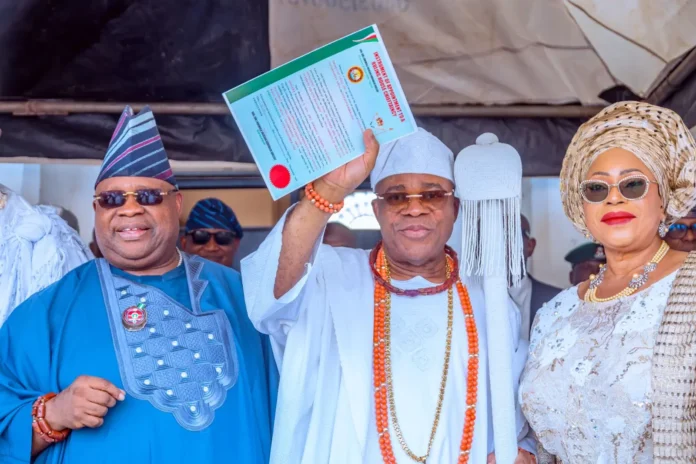Adeleke Violated Traditions, Customs In Appointing Owa-Obokun- Ruling Family
The Fajesinmi Royal Family of Bilaro Olu-Odo Ruling House has faulted what it described as the hasty selection and presentation of staff of office to the new Owa-Obokun of Ijesaland, Oba Adesuyi Haastrup, describing it as a description of the customs and traditions of Ijesa and Yorubaland.
Recall that Oba Haastrup was selected by kingmakers last Friday, and less than 72 hours later, Governor Ademola Adeleke confirmed his appointment and presented Staff of Office to the monarch.
However, reacting to the development, the Fajesinmi Royal Family of Bilaro Olu-Odo Ruling House, where the new monarch was selected, berated the hasty process that produced Oba Haastrup.
The family, in a statement by Prince Olufemi Fajemisin, noted that the ascension of a monarch in Yorubaland is not a political process but a sacred and spiritual journey that confers legitimacy and authority on the new monarch.
It reads: “By bypassing this time-honoured practice, the cultural essence of Yoruba kingship is eroded, and its sacred foundation is undermined. This rushed selection, approval and presentation of Staff of office-raised significant concerns and sparked widespread disapproval.
“Traditionally, installing a king in Yorubaland is meticulous, involving spiritual rites, consultation with the Ifa oracle, and a purification process known as seclusion.
“This process prepares the king-elect for the enormous responsibilities of leadership, both physical and spiritual, and aligns him with the ancestral and divine order of kingship. It is the foundation of the king’s authority and legitimacy. It symbolizes his initiation into the mysteries of kingship and the spiritual responsibilities that come with the throne.
“Such an act disregards the customs and traditions that have sustained the Yoruba people for centuries and diminishes the spiritual significance of the king’s role as a custodian of culture and intermediary between the people and the divine.”





